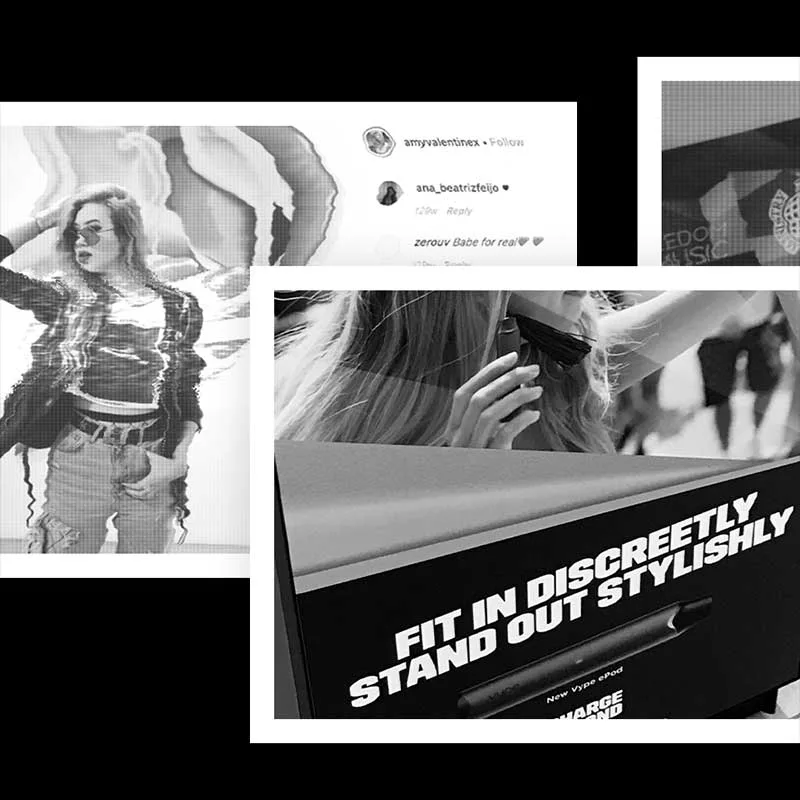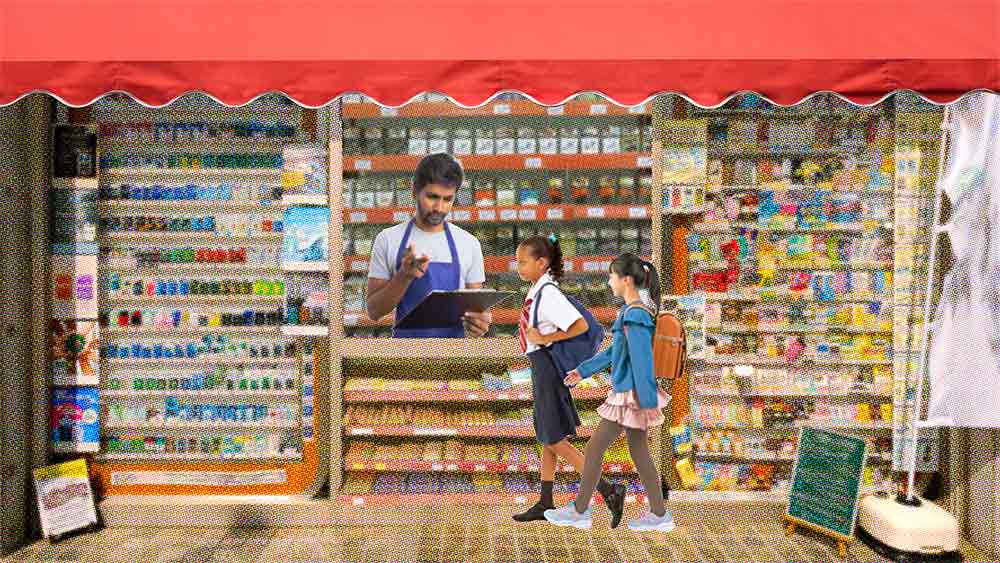- Resources
- News
-
-
Get Email Updates
Sign up for STOP's emails and never miss an update on our latest work and the tobacco industry's activity.
-
Get Funding
Ready to tackle industry interference? You could be eligible for a grant.
-
Share a Tip
Do you have information on tobacco industry misconduct in your country? Let us know.
-
Get Email Updates

Whether at classical symphony halls, electronic music festivals or on playlists streaming online, tobacco industry sponsorship of music is everywhere.
The events tobacco companies choose to sponsor and the specific products or corporate brands they push at these events also hint at their apparent strategy to boost their corporate image or target new addictive products at younger people.
From high culture to pop culture
Walk the halls of the U.K. Royal Opera House. Take in a show at the Kuala Lumpur Performing Arts Centre. Spend an evening with the London Philharmonic Orchestra. At any of these esteemed venues and in their materials, you may see corporate branding for major tobacco companies. British American Tobacco (BAT) is a corporate patron of the U.K. Royal Opera House and a donor to the London Symphony Orchestra, while Japan Tobacco International (JTI) is a Principal Partner to the London Philharmonic Orchestra and supports the Kuala Lumpur Performing Arts Centre.
However, spend time at SoundrenAline, Indonesia’s hugely popular music festival held in Bali, or at Tomorrowland, a large music festival in Europe, and the tobacco industry’s presence may look a little different. At youth-focused events like these—in person and online—tobacco companies brandish logos and messages associated with their tobacco and nicotine products, from cigarettes to e-cigarettes and nicotine pouches.
Sponsoring music events isn’t a new tobacco industry strategy, but it is evolving. In the 1990s, BAT launched a concert series to promote cigarettes in Nigeria. The series, called “Golden Tones,” expanded into Burma (now Myanmar), the Caribbean, Papua New Guinea, Sri Lanka, Thailand and South Africa.
Why sponsor music? According to a marketing strategy paper for the Benson & Hedges cigarette brand, prepared around the same time, music sponsorship was deemed to be a valuable avenue for “targeting younger consumers—the key to future growth.” There are two main reasons why tobacco executives would say this: First, they need to grow their customer base while creating new customers to replace current smokers who quit or die, and second because most lifetime (i.e. the industry’s most profitable) customers start using tobacco by the age of 21.
This marketing strategy still appears to be in use today, helping the industry reach younger consumers. While some companies are still hawking cigarettes (see Philip Morris International [PMI]’s Marlboro Mega Blast promotional stand at Lollapalooza in Buenos Aires in 2019, for example), others are pushing their newer addictive products and gaining access to even more people through tactics to reach audiences both in person and online.
‘Flavour galaxy boutiques’ and free samples
BAT has put significant sponsorship dollars into music events to promote its e-cigarette, Vuse, and its nicotine pouch, Velo. One high-profile music event the tobacco company sponsors is the Tomorrowland music festival. At the Winter 2022 Tomorrowland festival, held in the French Alps, there was a Vuse-branded stage, as well as a “Vuse Boutique” and “Vuse Flavour Galaxy Boutique.” The next Tomorrowland festival, scheduled for three consecutive July weekends in Belgium, has been promoted on Velo’s global Instagram account, even though the festival’s website does not currently list BAT, Vuse or Velo as sponsors. The tobacco company’s presence at the festival is still possible, as neither BAT nor its brands were named in the list of official partners on the winter festival’s site, either.

Observers also noted that at the entrance checkpoint, cigarettes that weren’t a Sampoerna brand were confiscated.
BAT is also heavily promoting its newer products via online music sponsorships. In November 2020, Vuse sponsored three live-streamed concerts, which critics said promoted its products to young people. A month later, the company put its Velo nicotine pouch brand front and center when it sponsored a livestreamed performance by DJs DVLM on its YouTube channel. In the summer of 2021, the company produced “Vuse Inspired Live,” an online “festival of art” that included musical artists. Venturing into video, BAT also promoted Velo in its “Sound Seeker” YouTube series.
The world’s largest transnational tobacco company, PMI, is also involved in music sponsorship. Sampoerna, PMI’s Indonesian affiliate, is the title sponsor for SoundrenAline, a major music festival initiated as well as sponsored by the tobacco industry (Sampoerna even owns the registered trademark for “SoundrenAline”). A report examining Sampoerna’s marketing and products at the 2016 SoundrenAline festival found branding for “A Mild,” a Sampoerna cigarette brand, throughout the concert venue. Limited edition A Mild cigarettes and other “A” brand cigarettes were sold at the festival, and reportedly came with a SoundrenAline-branded lighter. Observers also noted that at the entrance checkpoint, cigarettes that weren’t a Sampoerna brand were confiscated. While SoundrenAline was held virtually last year, and engaged one of the country’s biggest media outlets as a partner, it is reported to be returning to a live format this year in Bali.
Music fans are also being exposed to Nordic Spirit, JTI’s potentially addictive nicotine pouch product. The brand is an official sponsor of at least seven music festivals in the U.K. this summer. It offers free samples online as a partner of the London music/cultural venue Brixton JAMM, as well as via the online music festival, Junction 2, and its sponsored playlists.
Even smaller tobacco companies are following suit. In May, Pacific Cigarette Company announced it would run programs across 10 provinces in Zimbabwe to “identify talent in the music industry” and support up-and-coming musical artists.
Different goals for different venues?
Just as we have to question why tobacco companies choose to sponsor certain arts institutions over others—in particular, those located near government and policymaking hubs—we have to consider why they use their corporate branding for sponsorship of “classic” venues and orchestras, and newer product branding at youth-focused events.
The former may be designed to influence public opinion. Corporate sponsorship and donations to arts and music institutions are a type of so-called corporate social responsibility (CSR). The purpose of this so-called CSR is to divert attention away from the harm and death these tobacco companies’ products cause, and associate their corporate brands with the high culture, glamour and luxury of the fine arts. Having their corporate branding on these institutions may also serve to build goodwill among influential audiences.
The tobacco industry’s sponsorship of music festivals and online music events, videos and playlists, however, seems to have a different goal: to expose younger people to its products. It’s not about philanthropy or creating goodwill—it’s about addicting a new generation on tobacco and nicotine to protect its future profits.




